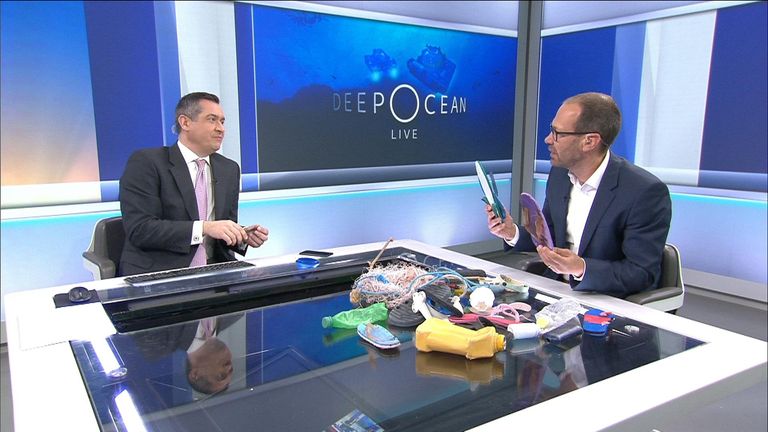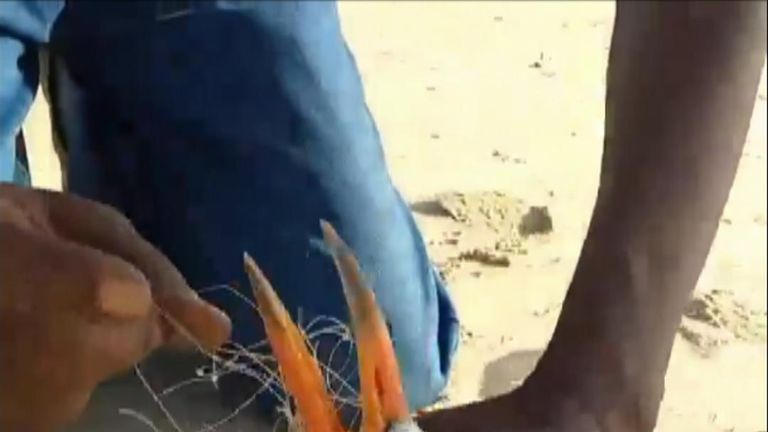Microplastics have been discovered in a remote area of the French Pyrenees mountains, according to a new study.
Researchers collected an average of 365 tiny pieces of plastic from each square metre of their sample region over a five-month period.
The fragments were carried to the stretch of the mountain range which straddles France and Spain by the wind.
The sample site in southwest France was just over four miles away from the nearest village and around 75 miles from the nearest city of Toulouse.
"It's astounding and worrying that so many particles were found in the Pyrenees field site," said co-author Steve Allen, a PhD student at the University of Strathclyde in Scotland.
Advertisement
"What we can unequivocally prove is that it's being transported there by the wind.
"It opens up the possibility that it's not only in the cities are you breathing this in, but it can travel quite some distance from the sources.
More from France
"Plastic litter is an increasing global issue and one of the key environmental challenges we face on global scale."
More than eight million tonnes of plastic is thrown away each year and washed out to sea.

It takes centuries to break down, is eaten by marine creatures, and as a result is in the human food chain.
Microplastics, which are invisible to the naked eye, have been found in tap water around the world and in some of the most remote places on earth, with studies showing they have even reached Antarctica.
As well as the physical fragments, toxins added during manufacturing and organic pollutants gathered during air and water travel also accumulate in ecosystems.
Scientists are only now beginning to measure the damage to wildlife and potential impacts on human health.
Mr Allen added: "We don't know if they are harmful, but there have been studies on mice and fish in lab conditions with virgin laboratory grown plastic which have shown the effects of digesting or breathing in microplastics can lead to changes in behaviour in things like feeding and mating habits.
 Read More – Source [contf] [contfnew]
Read More – Source [contf] [contfnew] 
Sky News
[contfnewc] [contfnewc]






